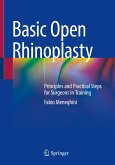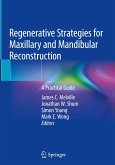The traditional closed rhinoplasty procedure used to produce unstable results, including the "polly beak" deformity, and has largely been replaced by open rhinoplasty, which has now become the new standard. Nevertheless, the complete release of the skin from the nasal skeleton allows for more post-operative swelling, especially if the skeleton is greatly reduced. To enhance nasal definition many surgeons find it necessary to place grafts on the skeleton. This book describes a closed operation that avoids the unstable nose tip of past procedures by preserving the elastic tissue and greatly reduces post-operative swelling. It also presents a novel technique for tip refinement, which elongates the periphery of a dome-shaped tip and a new nose splint. Based on the author's over 30 years of clinical experience and innovations, this step-by-step guide appeals to experienced surgeons wishing to expand their tools and incorporate the advanced techniques described.
Bitte wählen Sie Ihr Anliegen aus.
Rechnungen
Retourenschein anfordern
Bestellstatus
Storno








